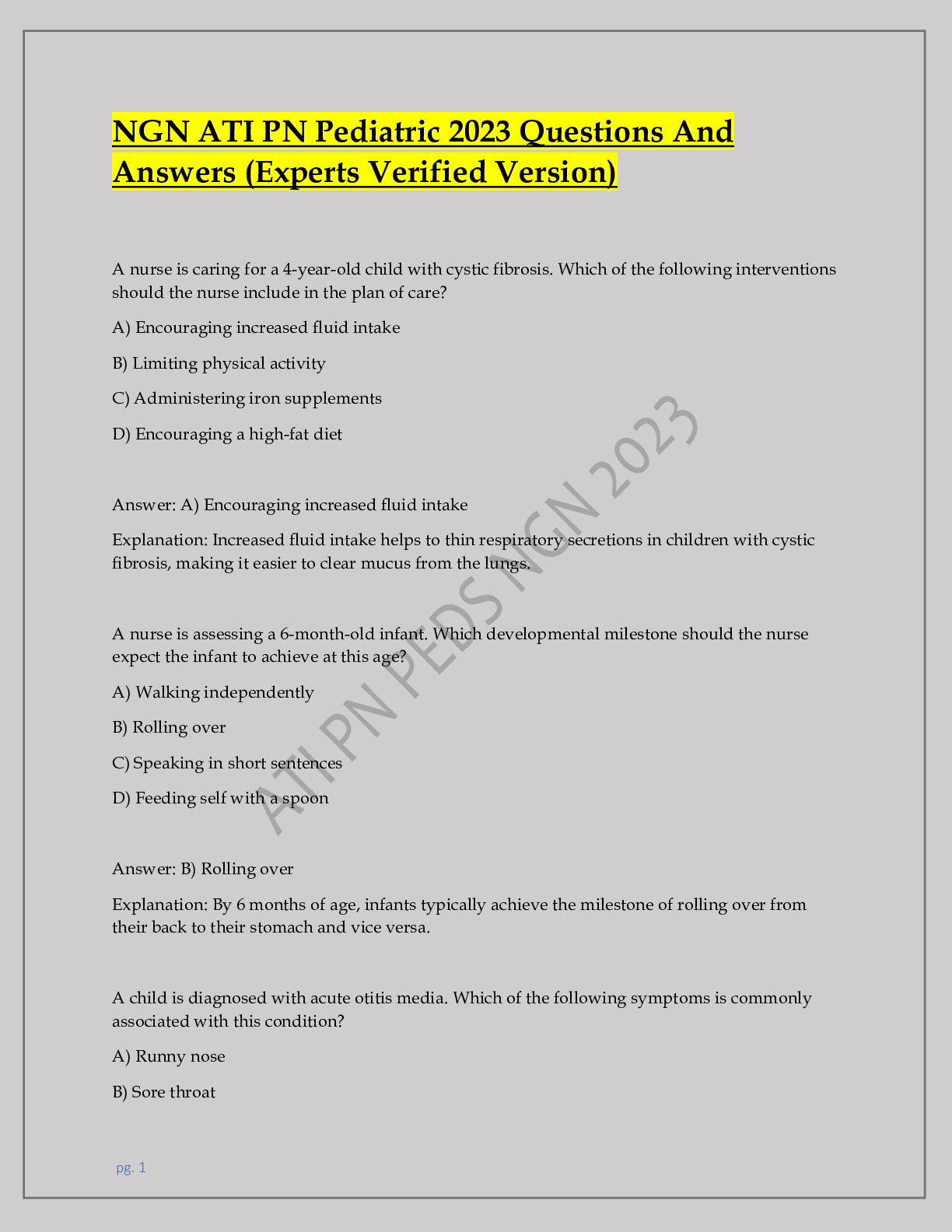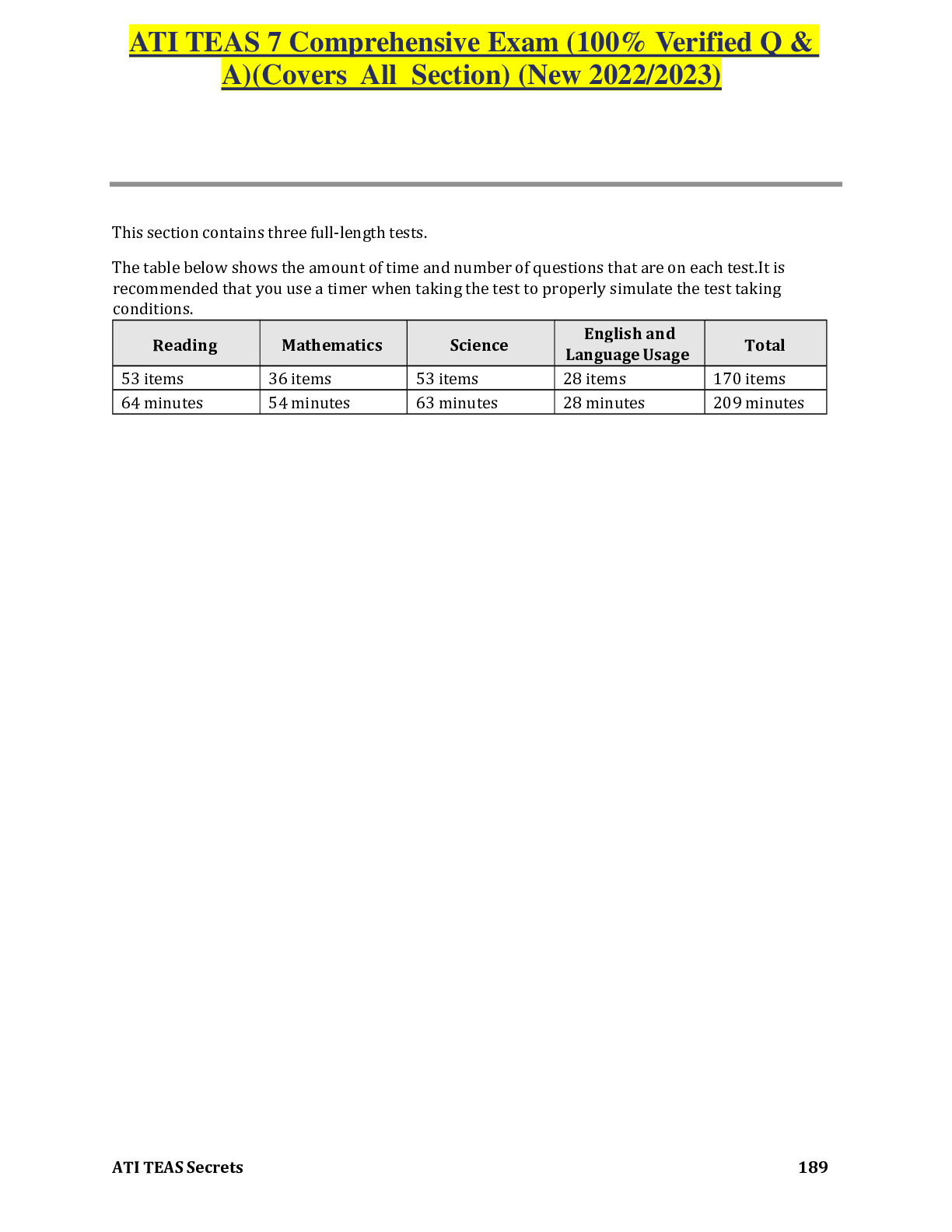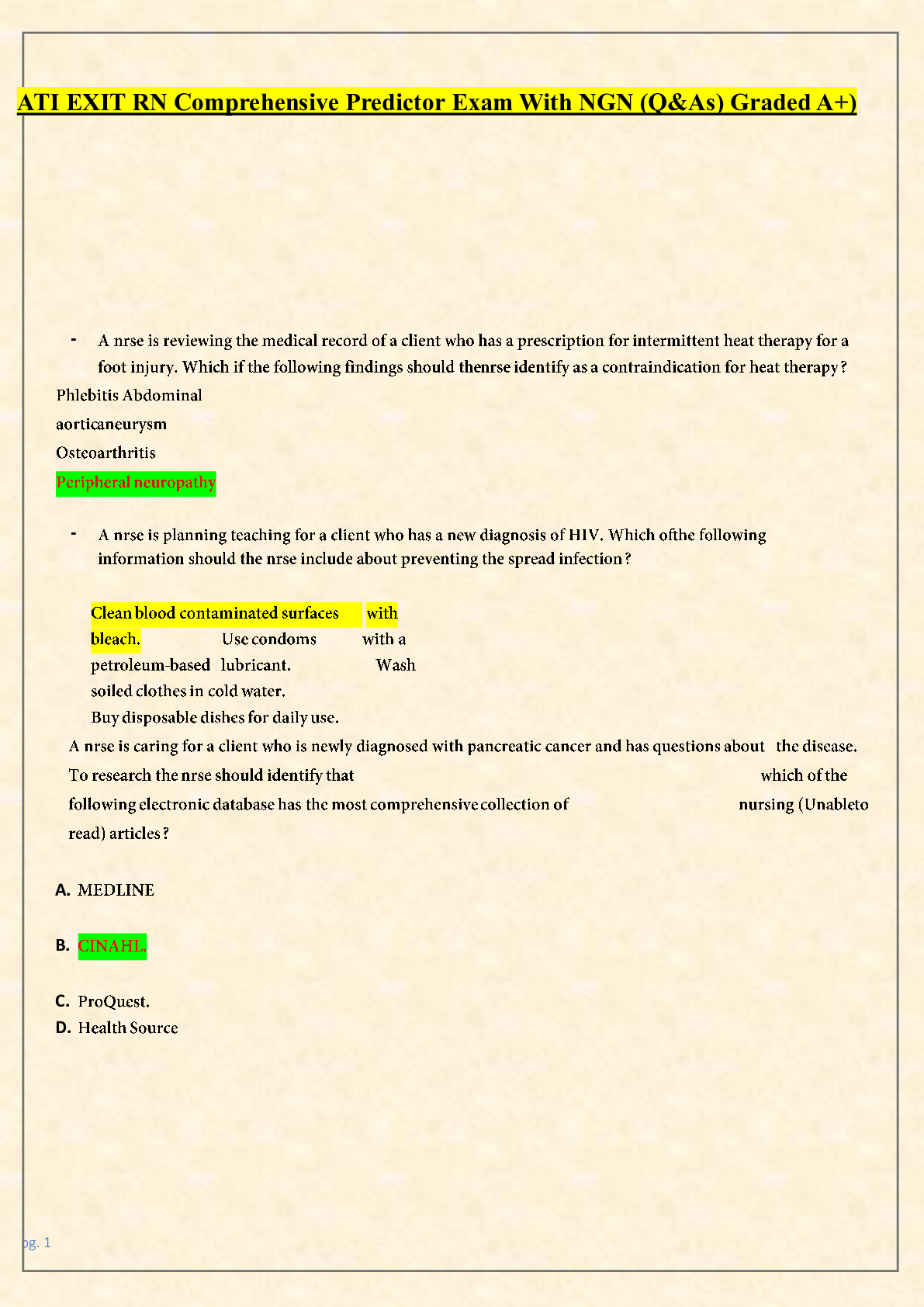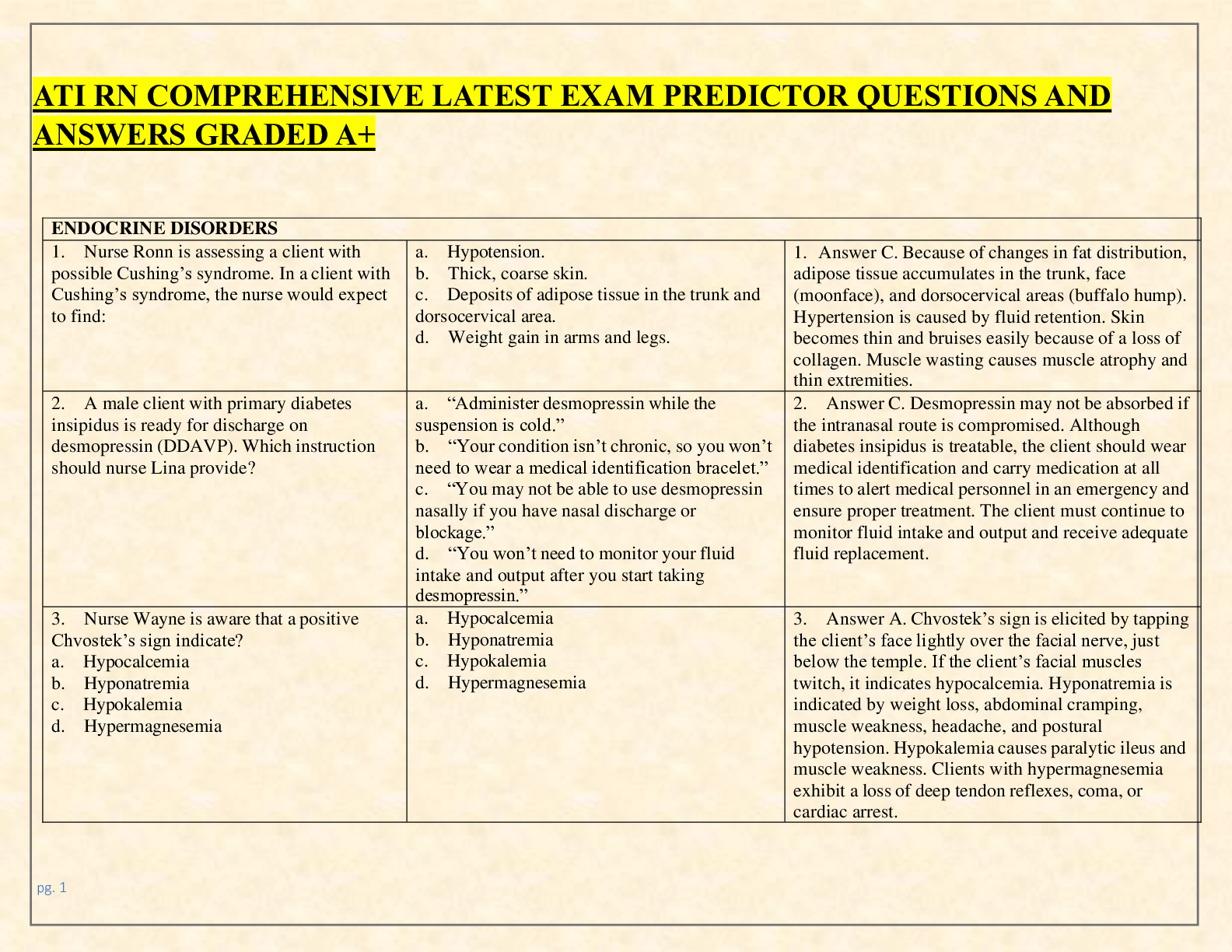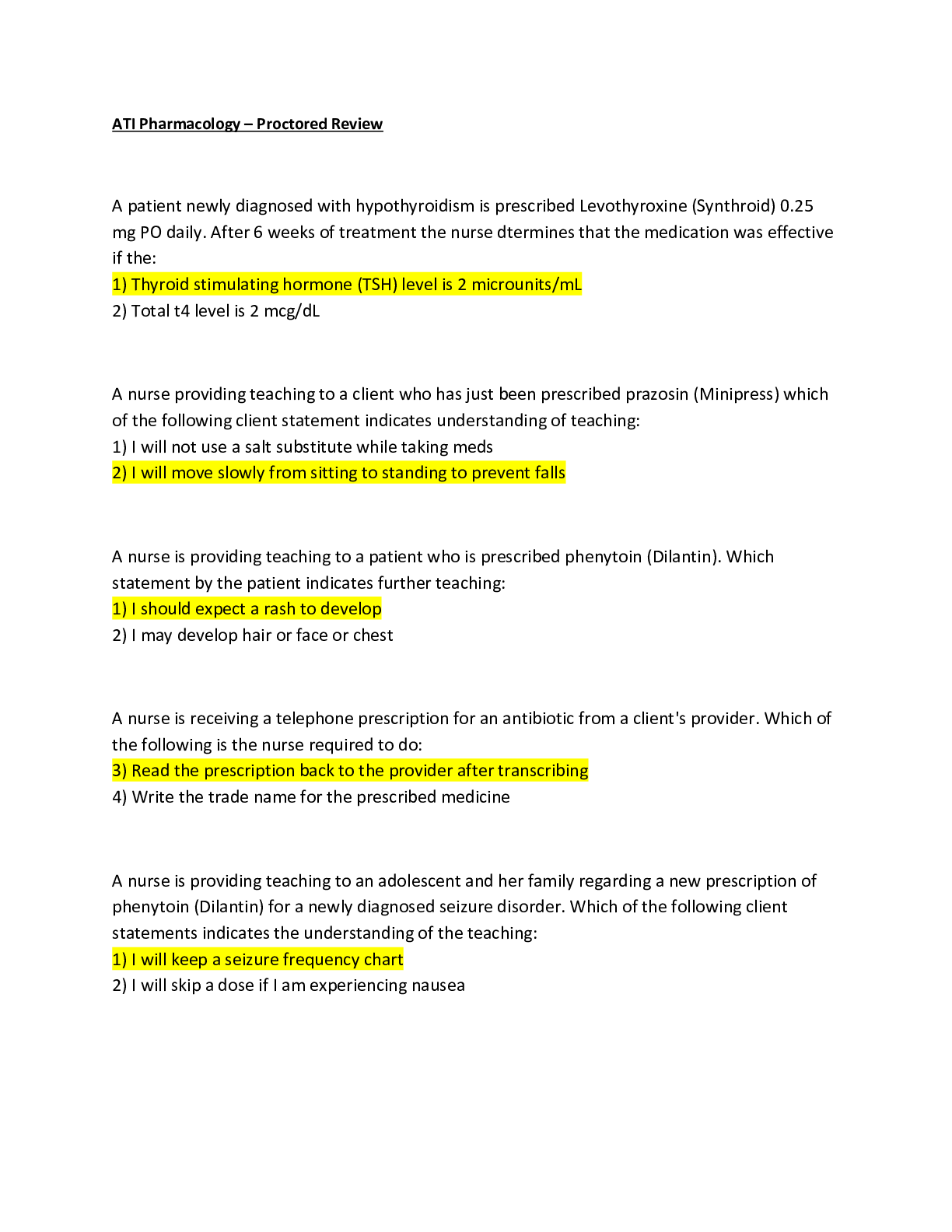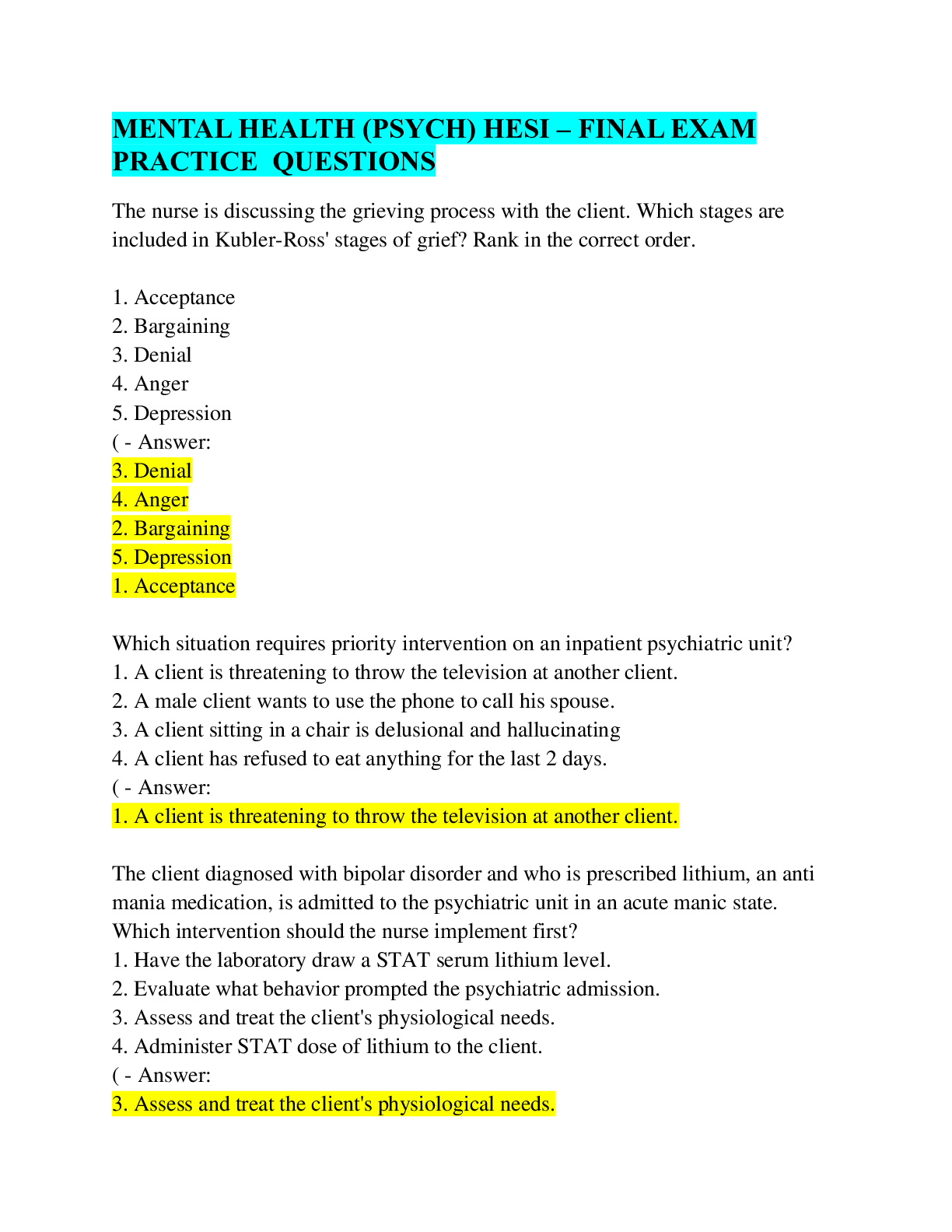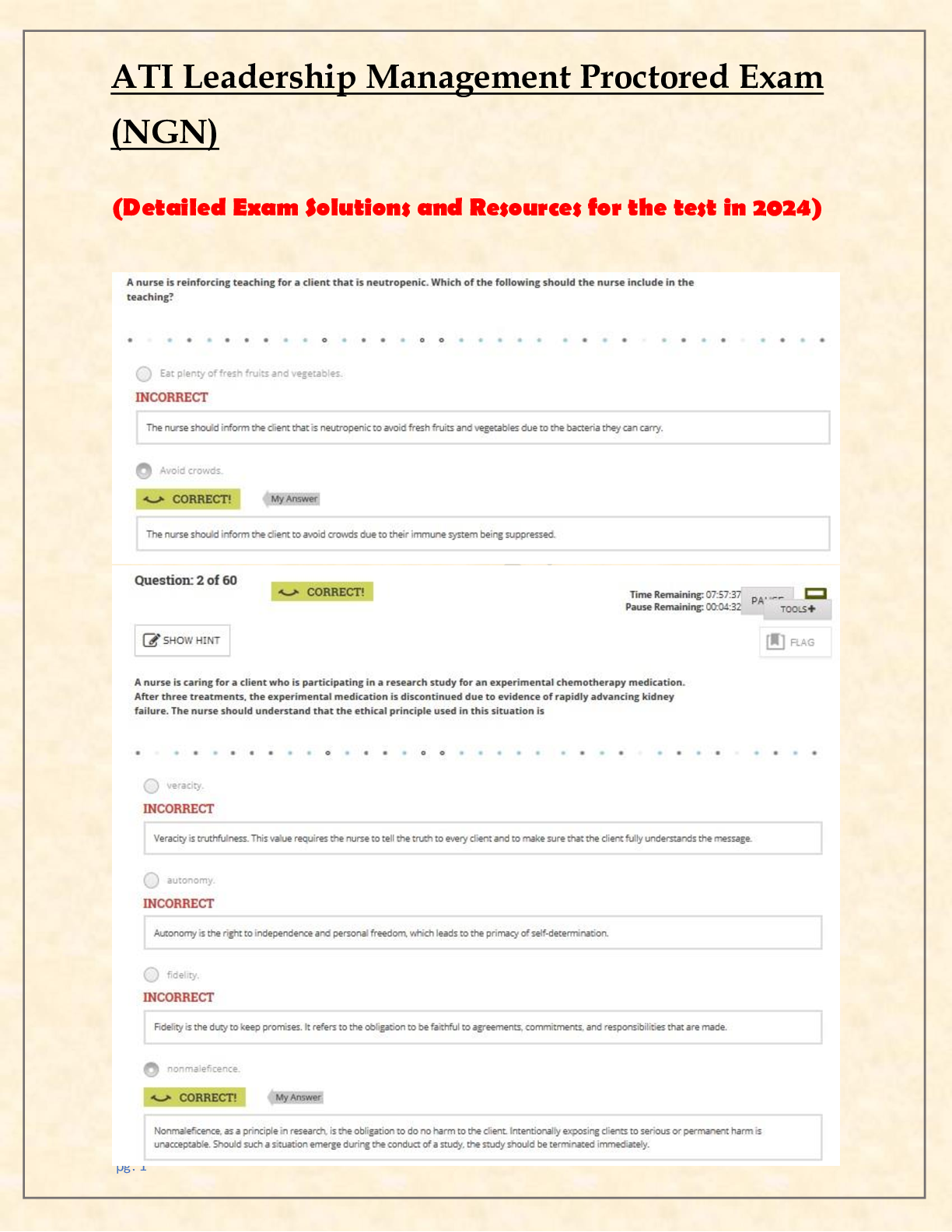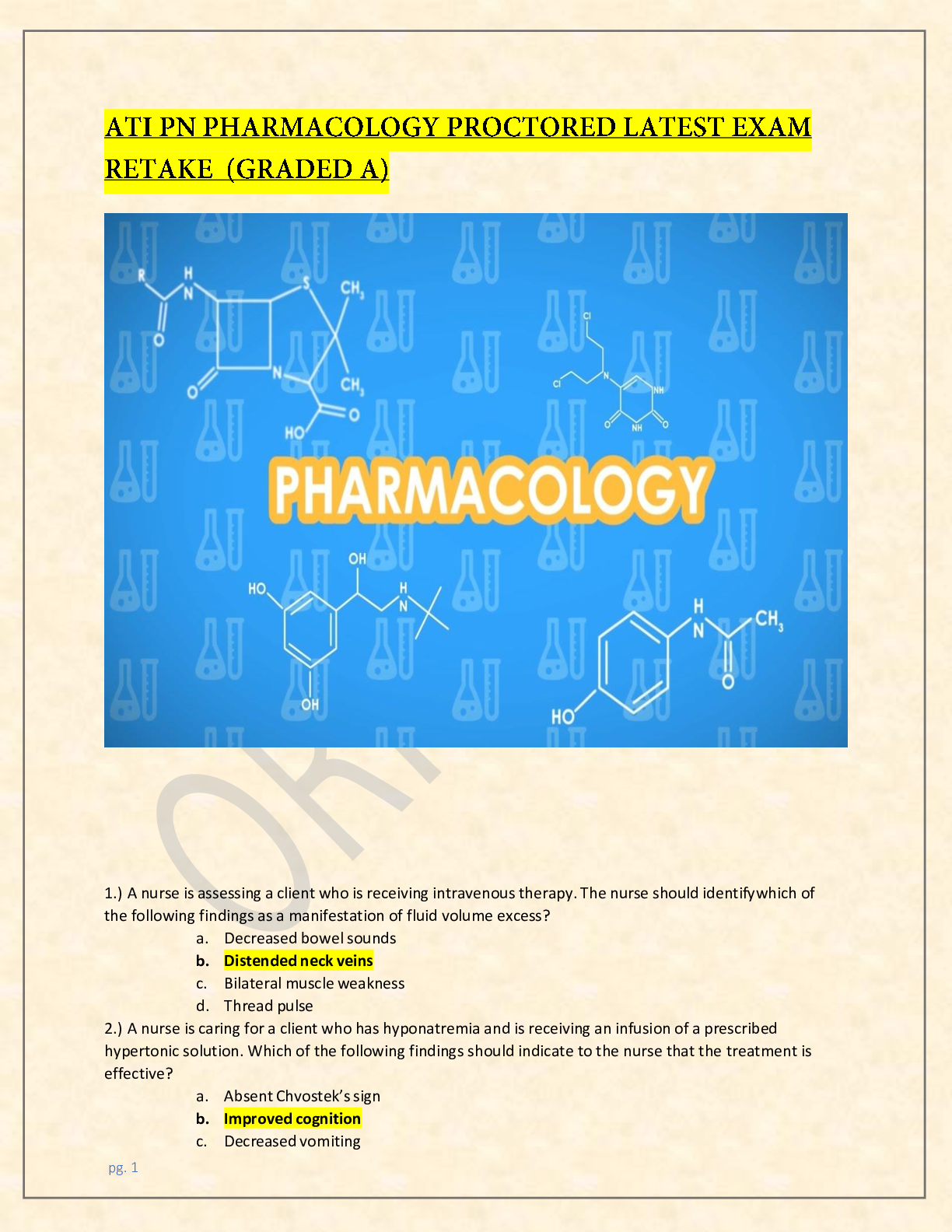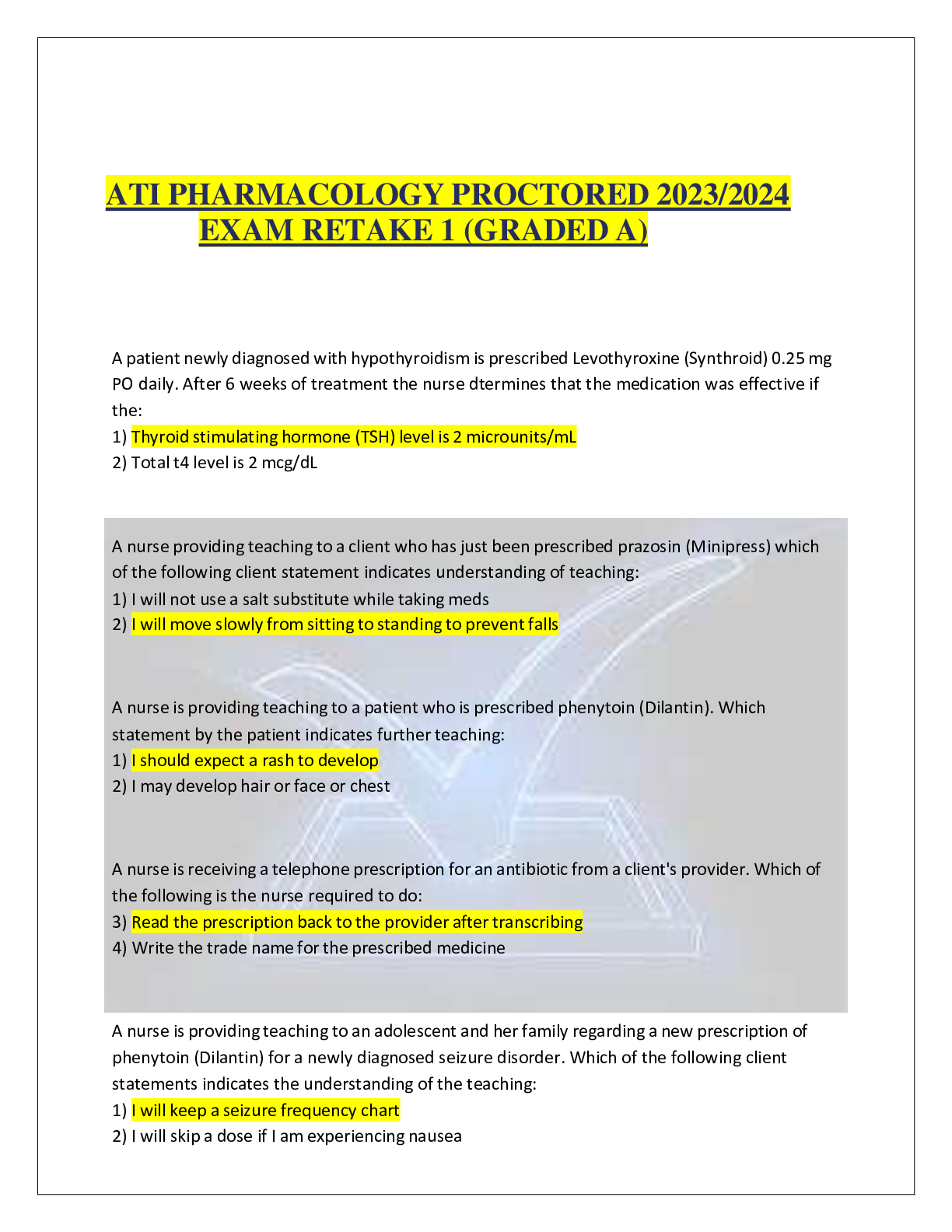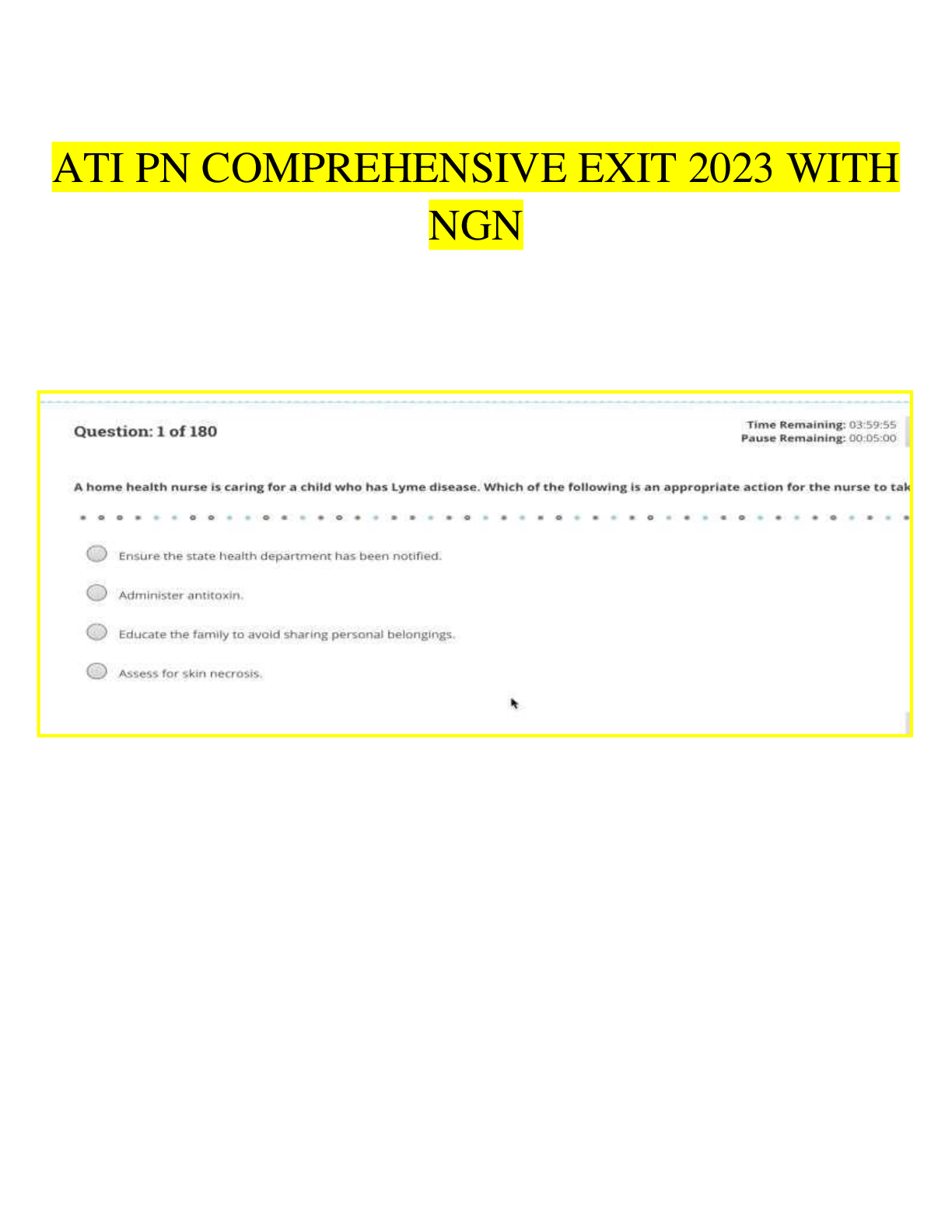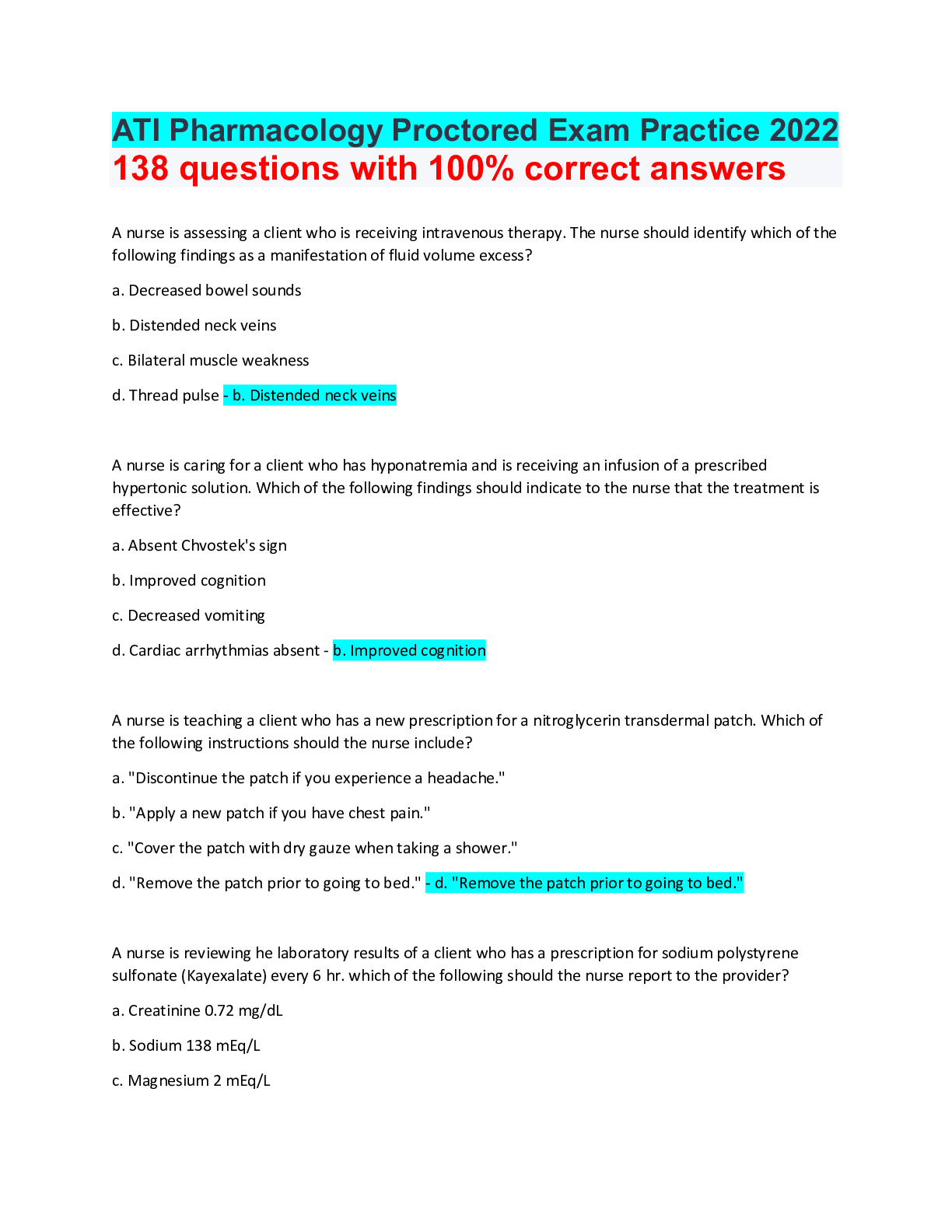*NURSING > ATI > ATI Mental Health Final Quiz 3 With Answers and Explanations (Complete solutions) REVISED (All)
ATI Mental Health Final Quiz 3 With Answers and Explanations (Complete solutions) REVISED
Document Content and Description Below
A nurse is reviewing the medications of a client who has bipolar disorder and a new prescription for lithium. The nurse should identify that it is safe to administer which of the following medication... s while the client is taking lithium? a. Ibuprofen Ibuprofen is not safe to administer to a client who is taking lithium because it can cause increased kidney absorption of lithium, which can lead to lithium toxicity. b. Haloperidol Haloperidol is not safe to administer to a client who is taking lithium because the combination of these medications increases the client’s risk for extrapyramidal adverse effects and tardive dyskinesia. c. Valproic acid Valproic acid and lithium are both indicated for the treatment of bipolar disorder. It is safe for the nurse to administer both of these medications to the client. d. Hydrochlorothiazide Hydrochlorothiazide is not safe to administer to a client who is taking lithium because it promotes sodium loss, which can lead to lithium toxicity. 14. A nurse in the emergency department is caring for a toddler with a fractured arm. which of the following finding should the nurse suspect as possible abuse? a. The parent provides a history that is inconsistent with the child's injury. The nurse should suspect possible abuse when the child’s injury conflicts with the history of the injury that is reported by his parent. b. The child is brought to the emergency department immediately following the injury. The nurse should suspect possible abuse when there is a delay in seeking medical care following an injury. c. The parent requests to remain present with the child throughout treatment of the injury. The nurse should suspect possible abuse when the parent leaves the treatment area or facility after bringing the child in for treatment of an injury. d. The child clings to the parent when the nurse begins to assess the injury. The nurse should suspect possible abuse if the child displays fear of the parent. 15. A nurse is evaluating a care plan for a client who has an Antisocial Personality Disorder. Which of the following client actions indicates he is making progress in treatments? (Select All That Apply) a. Assisting another client who has depression to fill out a menu. Clients who have antisocial personality disorder tend to lack empathy for others and often display an inability to connect with others. Assisting another client indicates the client’s willingness to help and connect with others and demonstrates to the nurse his progress with treatment. b. Nominating himself to chair the client government meeting. Clients who have antisocial personality disorder tend to see themselves as superior to others. Providing a self-nomination for chairperson status places him in a position of power over others; therefore, this behavior does not indicate progress with the treatment. c. Requesting a weekend pass to go home. Clients who have antisocial personality disorder tend to disregard rules and have a lack of respect for authority. Requesting a weekend pass indicates the client’s willingness to follow unit rules and demonstrates to the nurse his progress with the treatment. d. Serving as the judge for a unit talent show. Clients who have antisocial personality disorder tend to see themselves as superior to others. Serving as a judge places the client in a position of power over others; therefore, this behavior does not indicate progress with the treatment. e. Informing the nurse that the staff provides excellent care to clients. Clients who have antisocial personality disorder often use flattery as a form of manipulation to promote personal gain; therefore, providing a compliment to the nursing staff does not indicate progress with the treatment. 16. A nurse is providing teaching to a client who is to start taking valproic acid. Which of the following instructions should the nurse include? a. "You should expect the provider to gradually decrease your dosage of valproic acid." The nurse should inform the client that the provider will initially prescribe a small dose, and then gradually increase the dose until a maintenance dosage is achieved. b. "You should take aspirin for pain you have while taking valproic acid." The nurse should instruct the client to avoid aspirin while taking valproic acid because of the increased risk of spontaneous bleeding. c. "You should undergo thyroid function tests every 6 months while taking valproic acid." The nurse should identify that hypothyroidism is an adverse effect of lithium rather than valproic acid. d. "You should have your liver function levels monitored regularly while taking valproic acid" The nurse should inform the client of the need to regularly monitor liver function levels due to the risk for hepatotoxicity while taking valproic acid. It is recommended to obtain baseline levels and then repeat every 2 months during the first 6 months of therapy. 17. A nurse is teaching a client who has Agoraphobia about Systematic Desensitization. Which of the following comments should the nurse include in the teaching? a. "You will watch from a secure location as your therapist goes to public spaces." The nurse should recognize that encouraging the client to watch as the therapist acts as a role model in anxiety-provoking situations is an example of modeling, not systematic desensitization. b. "You will start your therapy by staying in a public space until your anxiety decreases." The nurse should recognize that sudden exposure of the client to the undesirable stimulus is an example of flooding, not systematic desensitization. c. "You will be instructed to say 'Stop!' out loud when you become anxious in public spaces." The nurse should recognize that saying "Stop!" to interrupt a negative thought is an example of thought stopping, not systematic desensitization. d. "You will slowly be exposed to increasing levels of public spaces." The nurse should inform the client that, using systematic desensitization, she will be gradually exposed to the feared situation under controlled conditions until she learns to overcome the anxious response. [Show More]
Last updated: 8 months ago
Preview 1 out of 18 pages
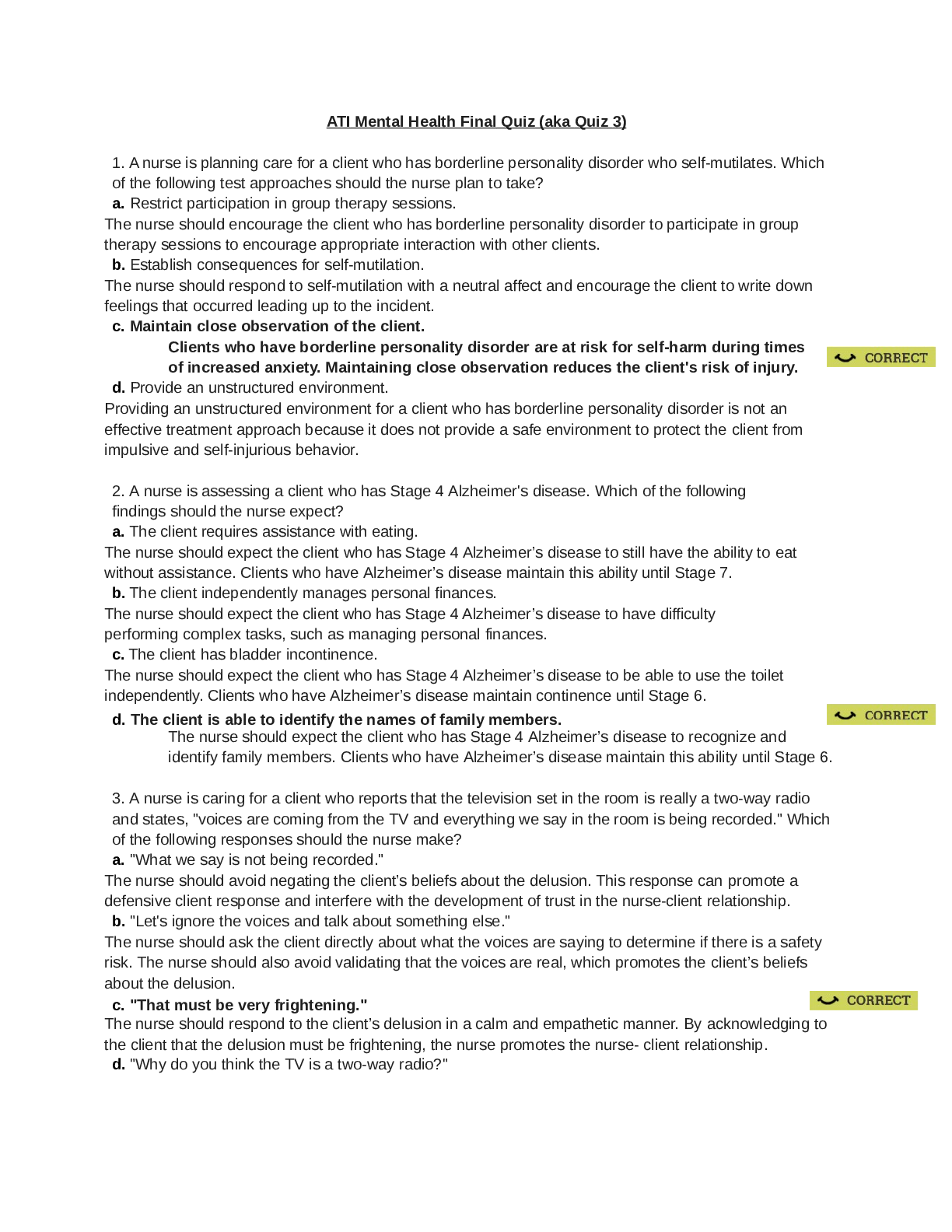
Reviews( 0 )
Document information
Connected school, study & course
About the document
Uploaded On
Mar 11, 2021
Number of pages
18
Written in
Additional information
This document has been written for:
Uploaded
Mar 11, 2021
Downloads
0
Views
48


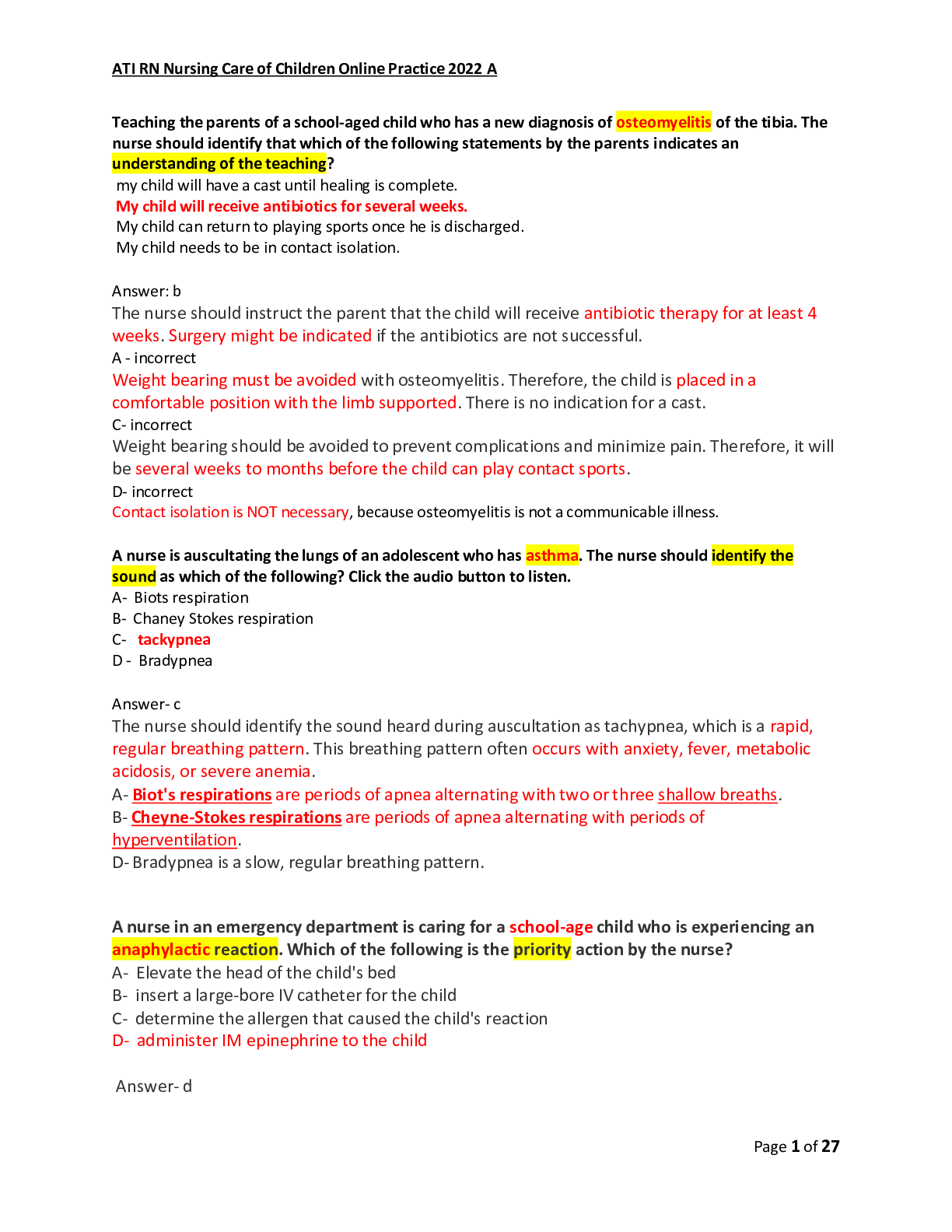
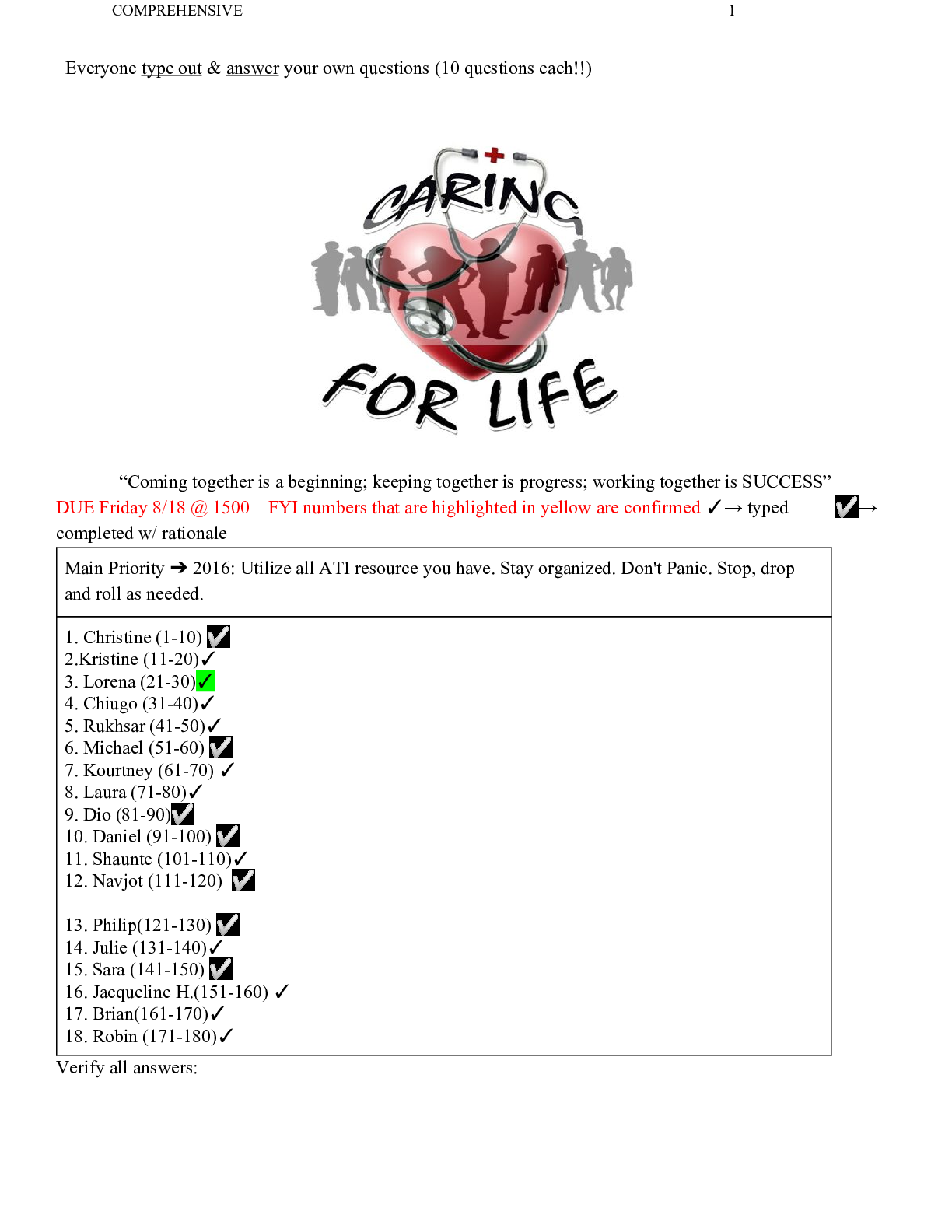
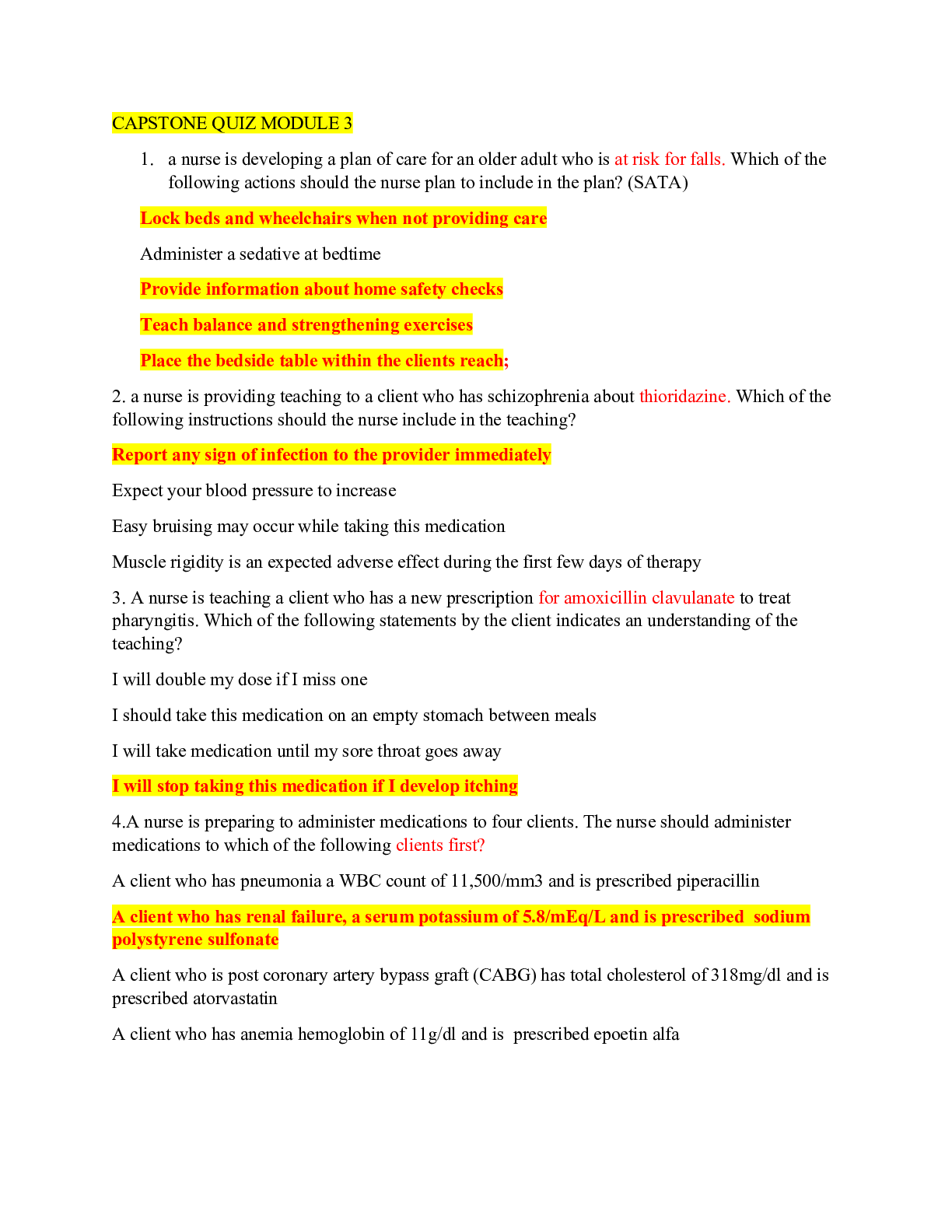
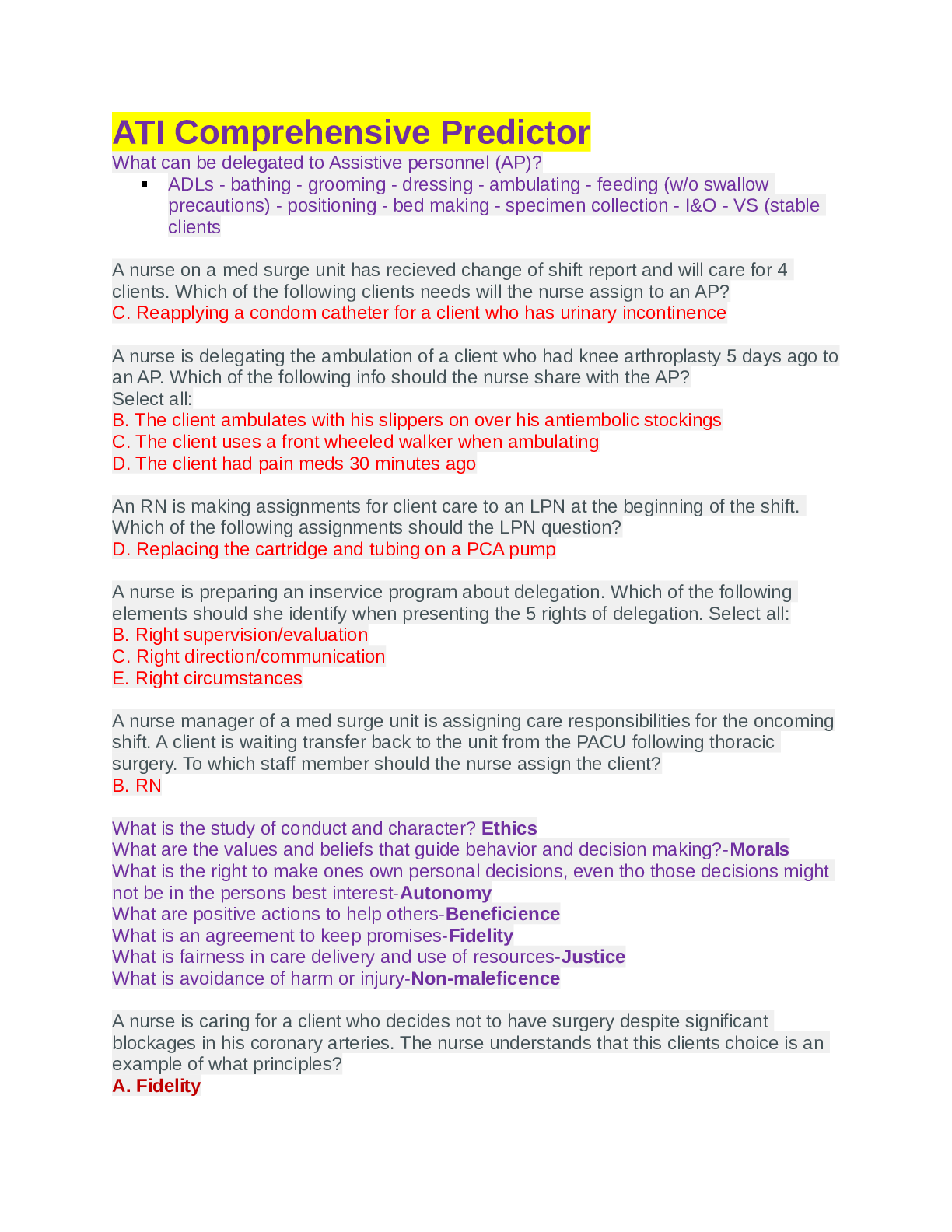
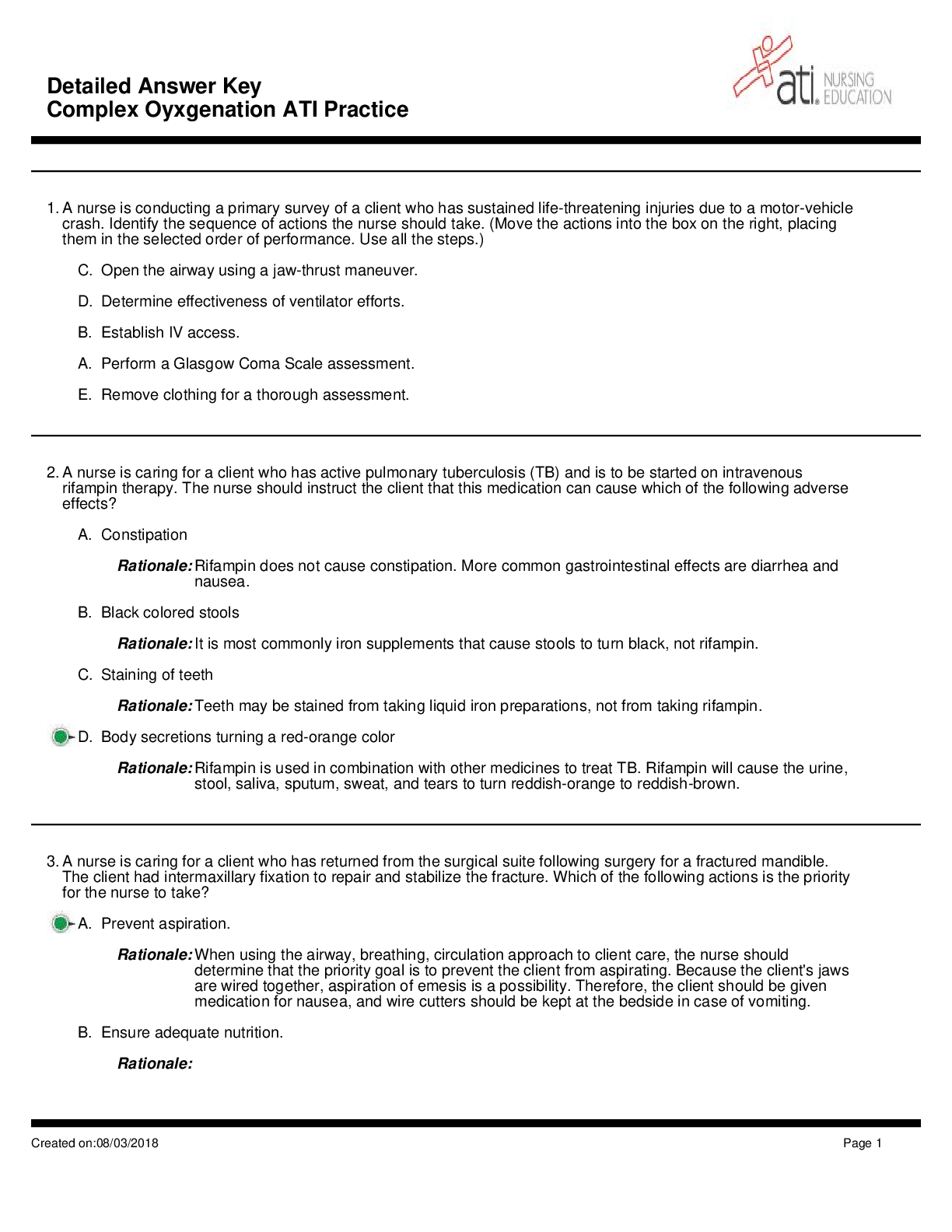
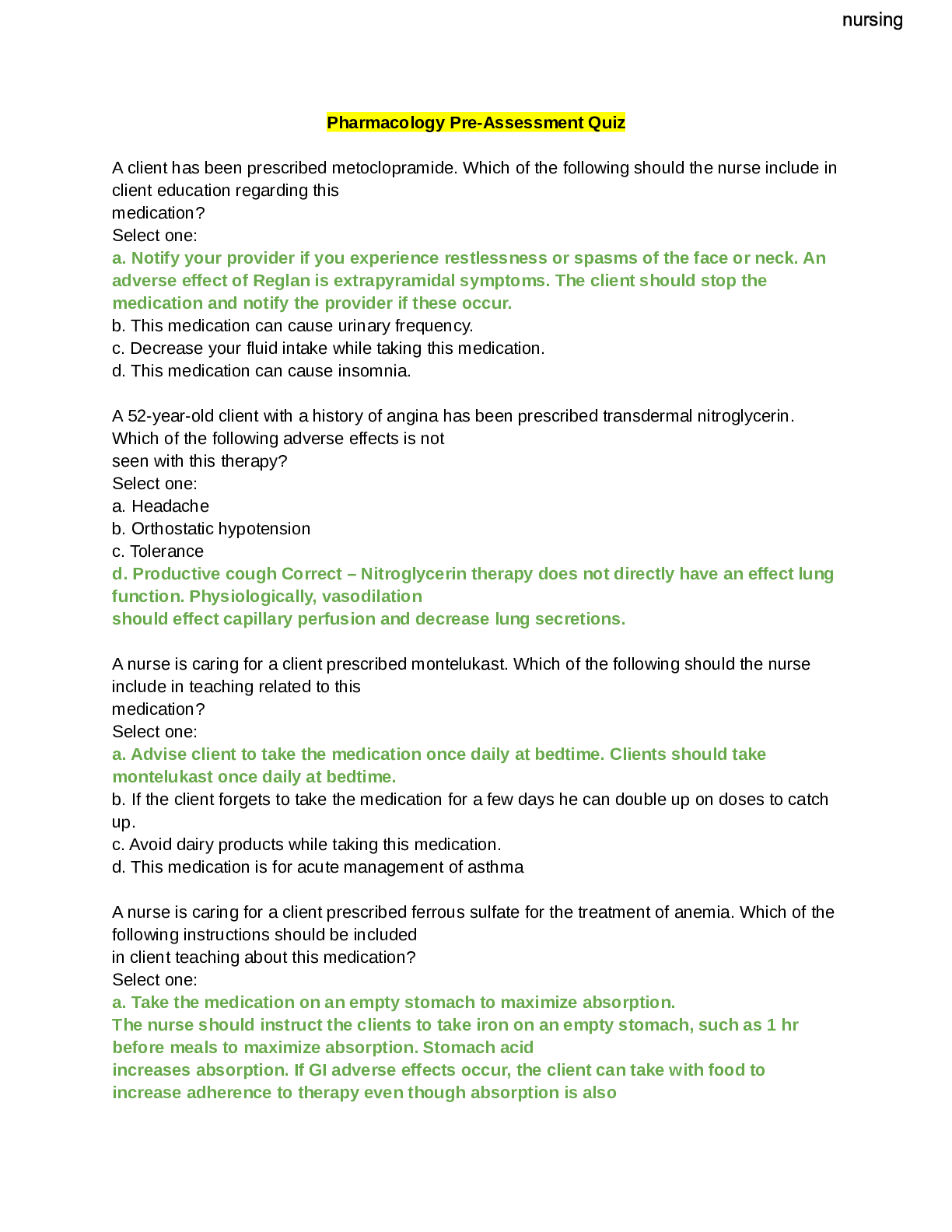
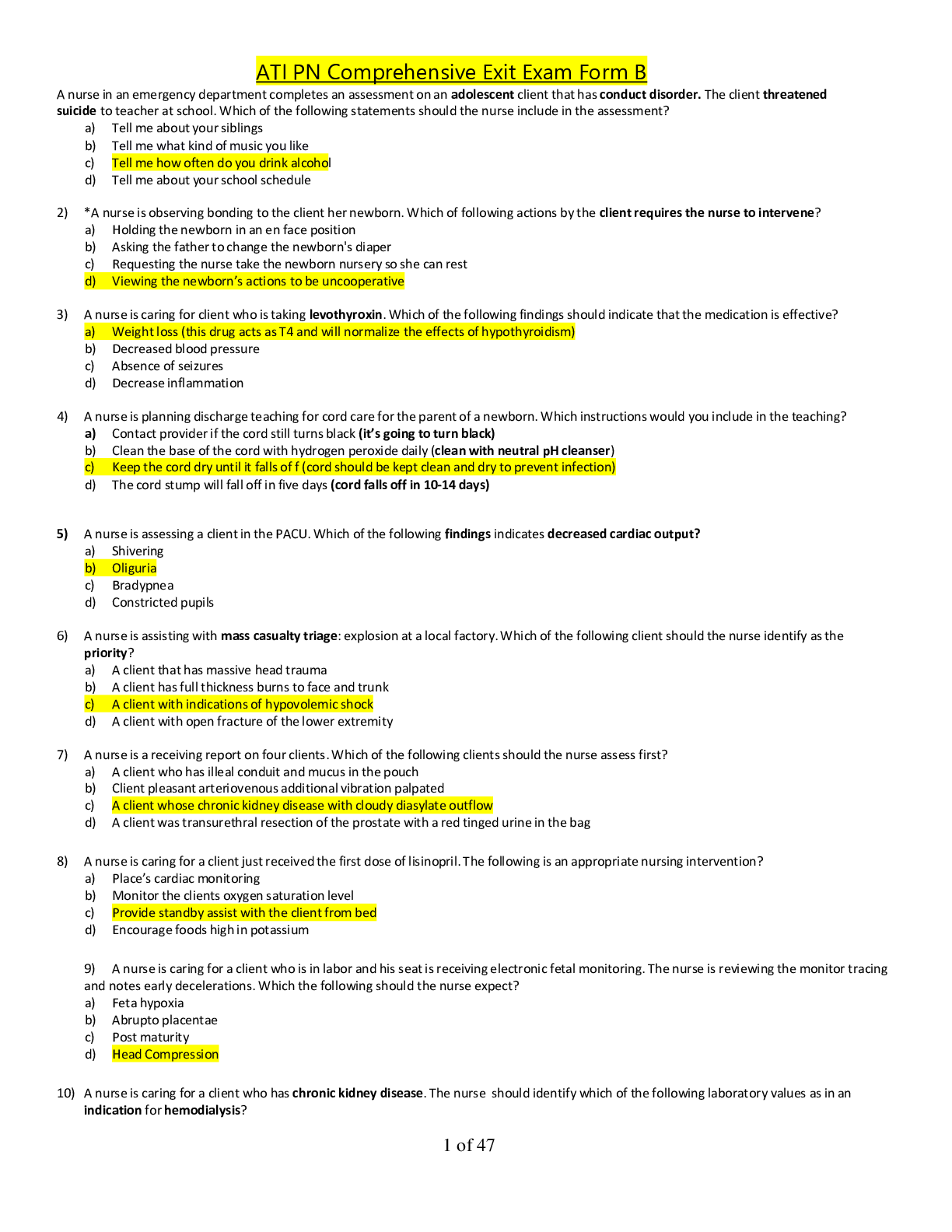

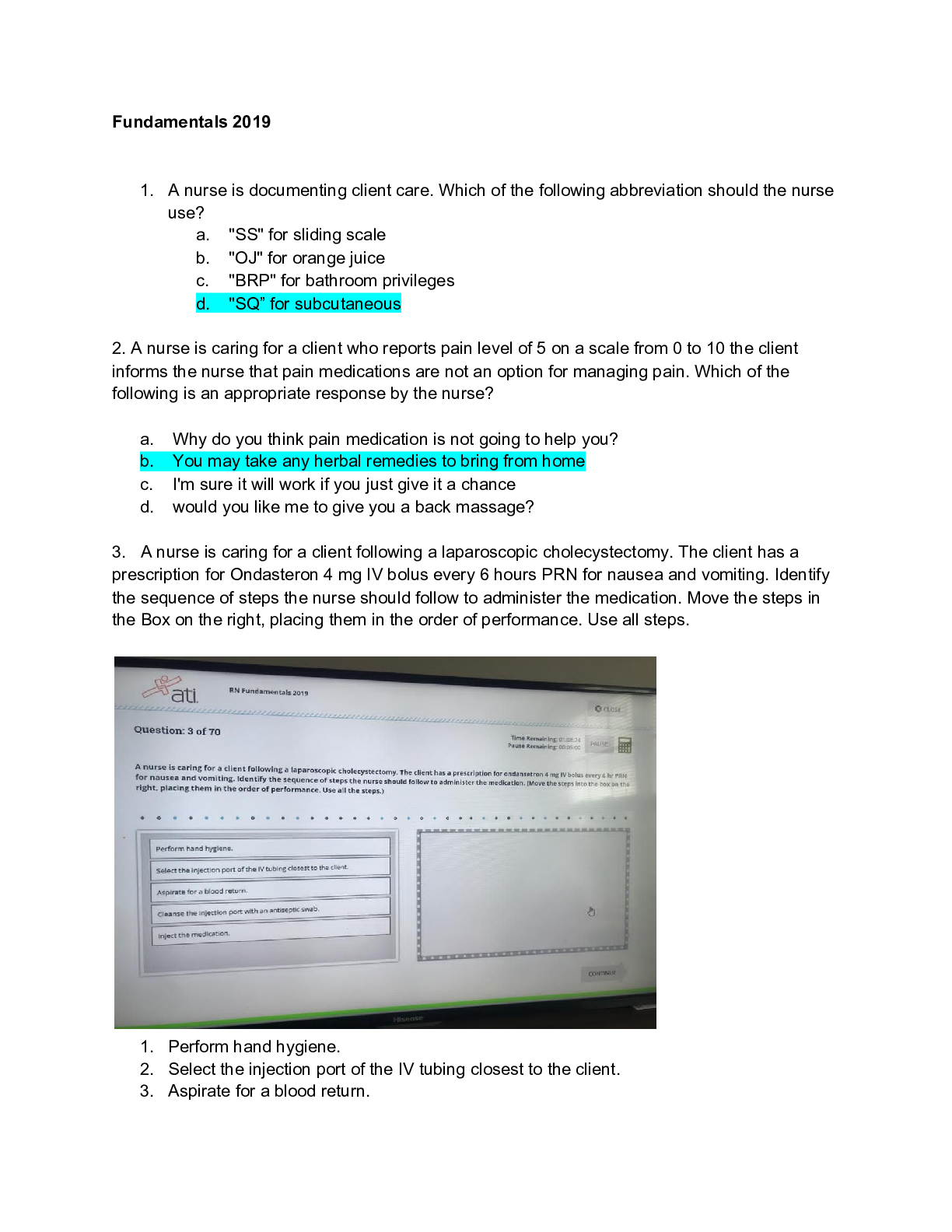
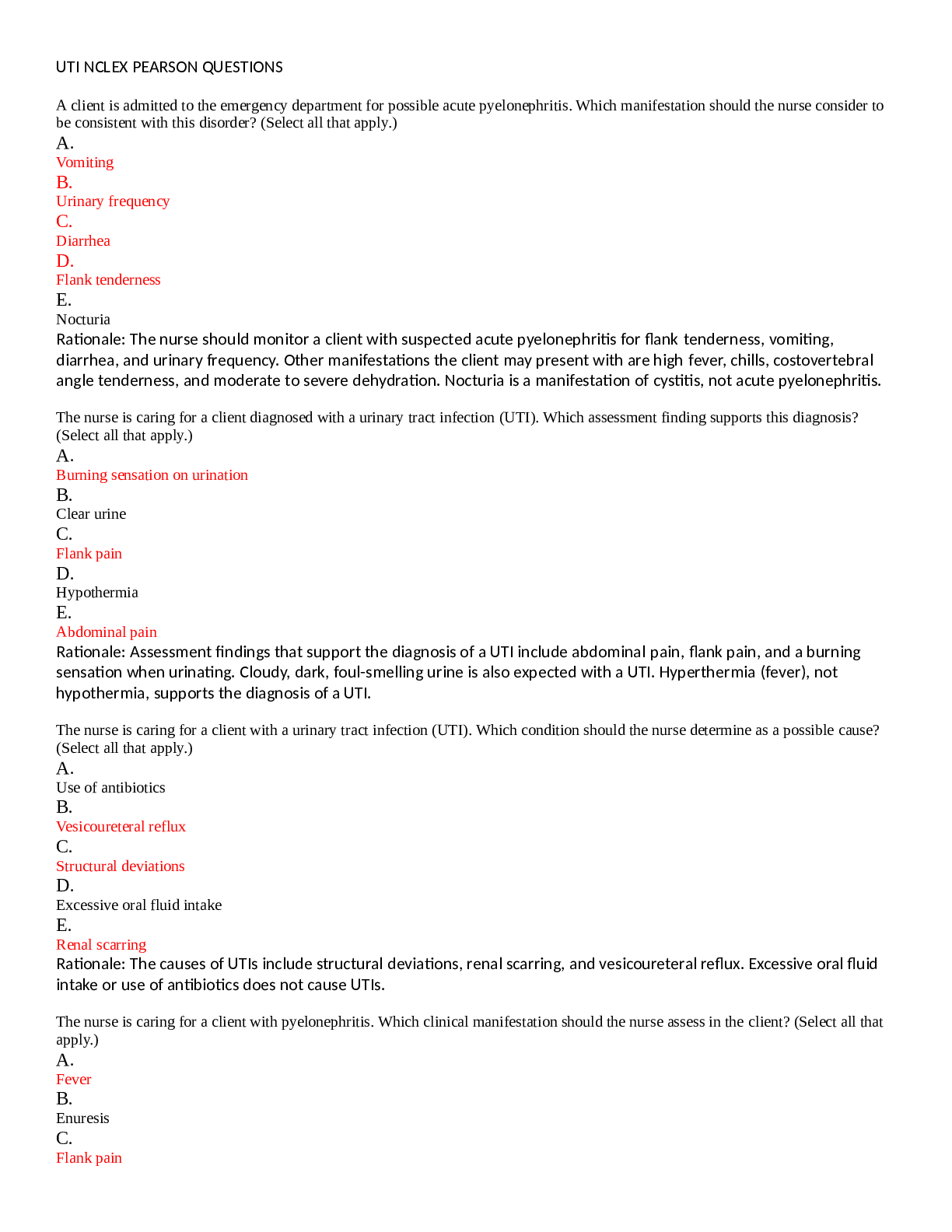
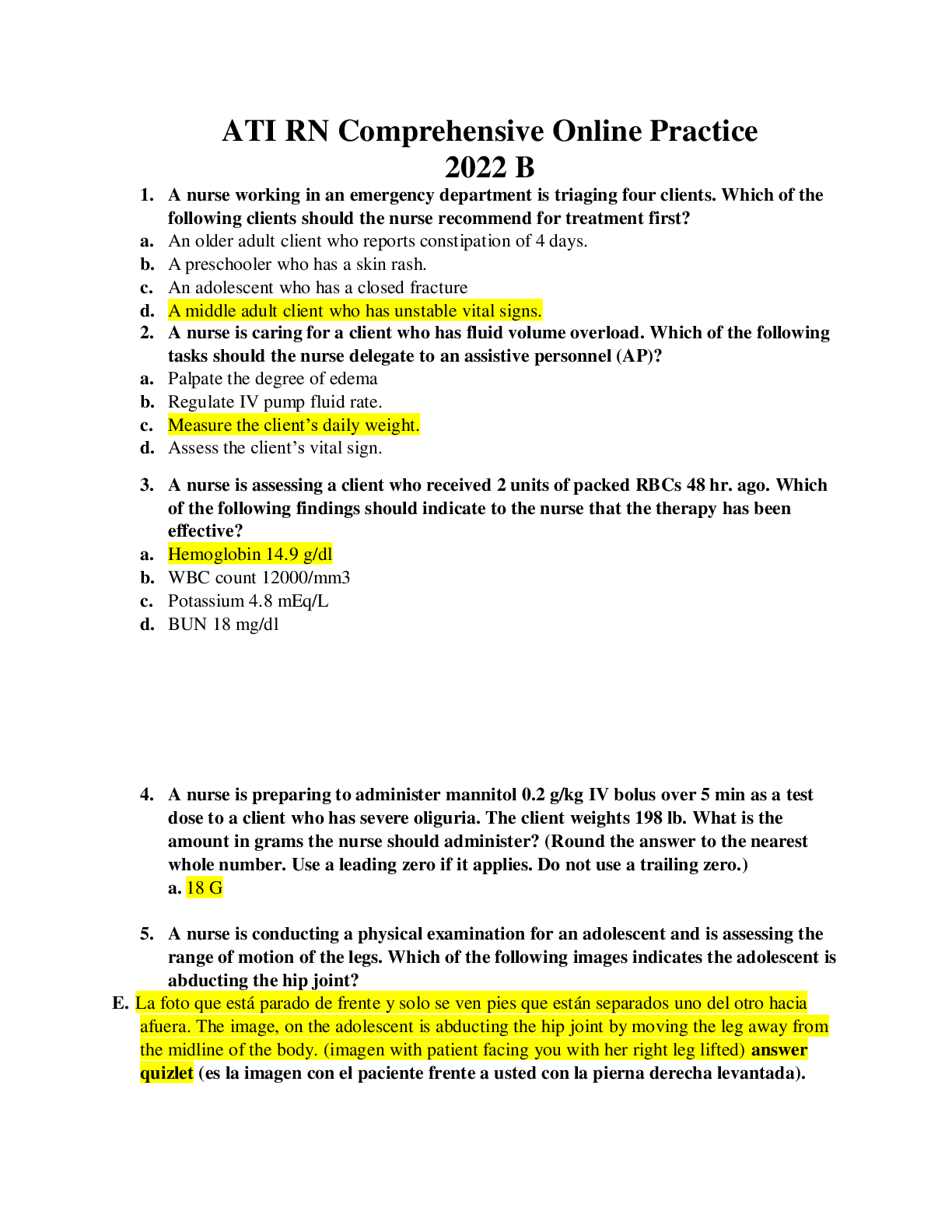
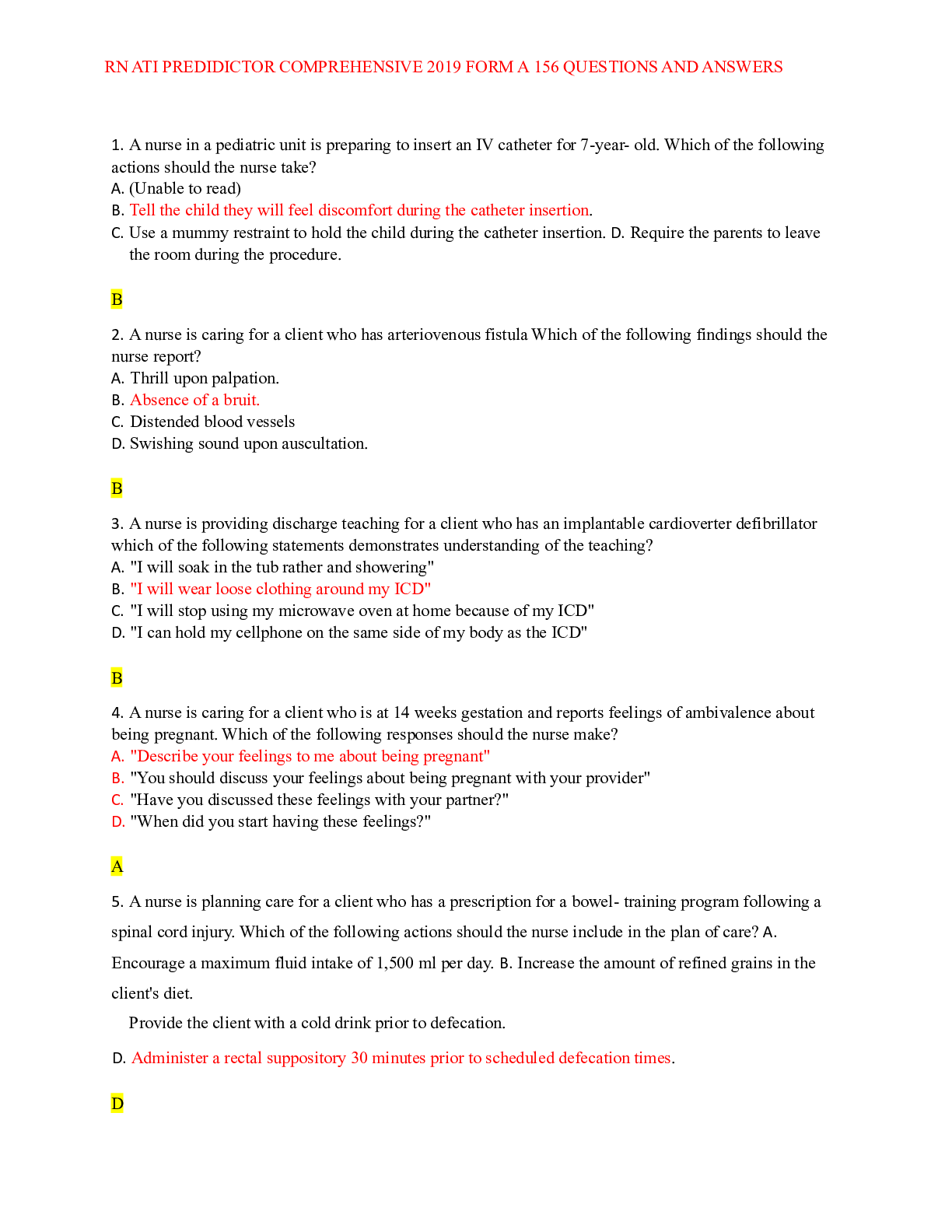
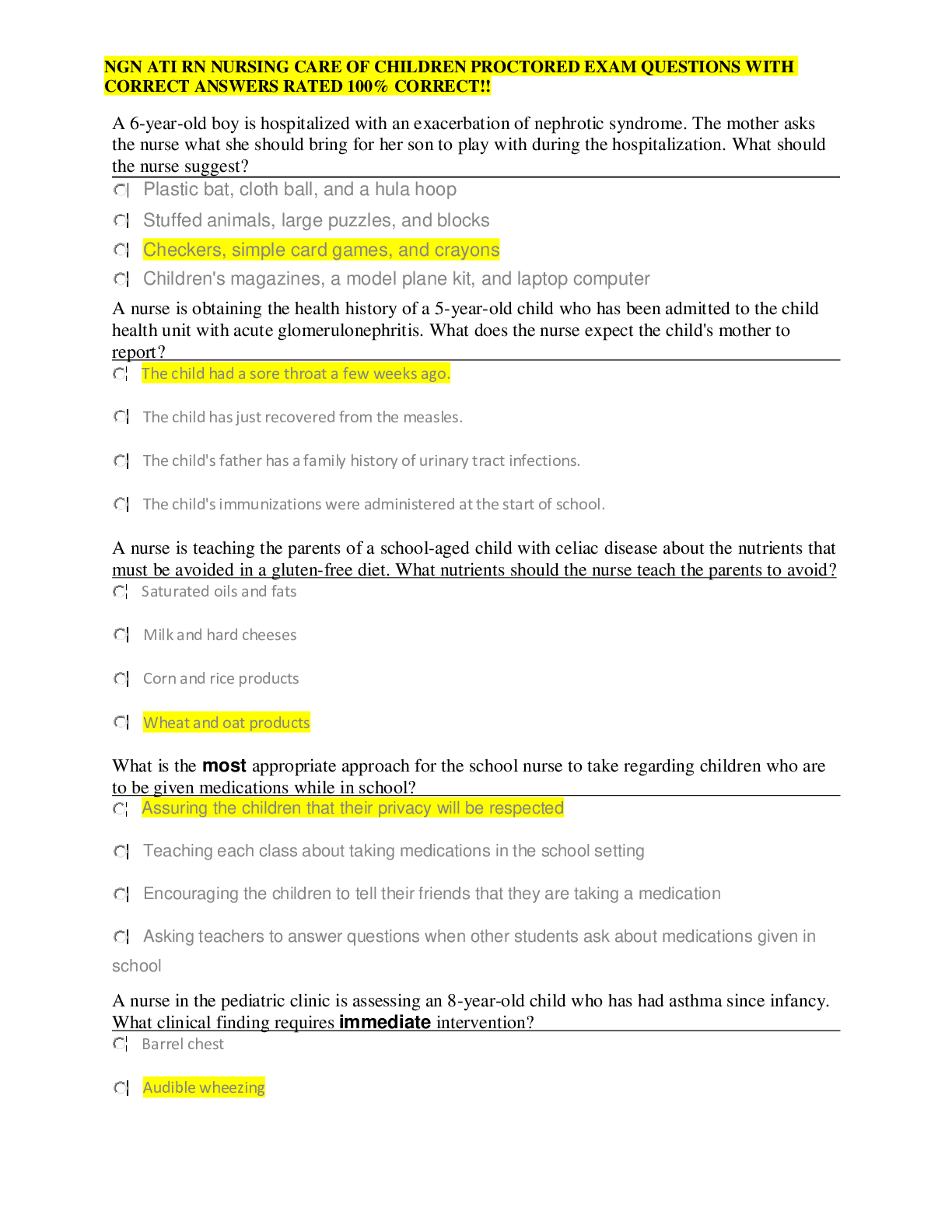

.png)
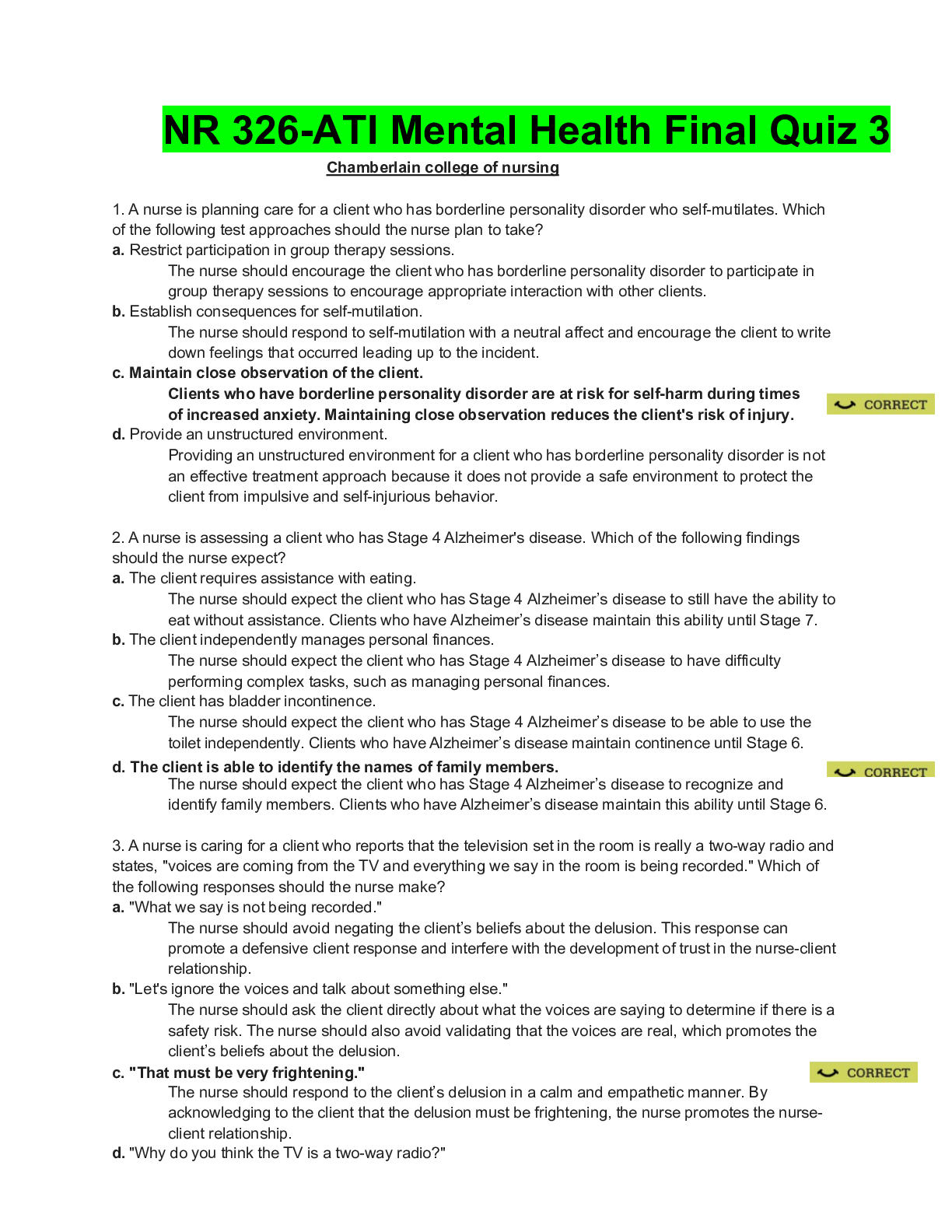
.png)
